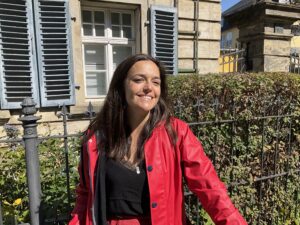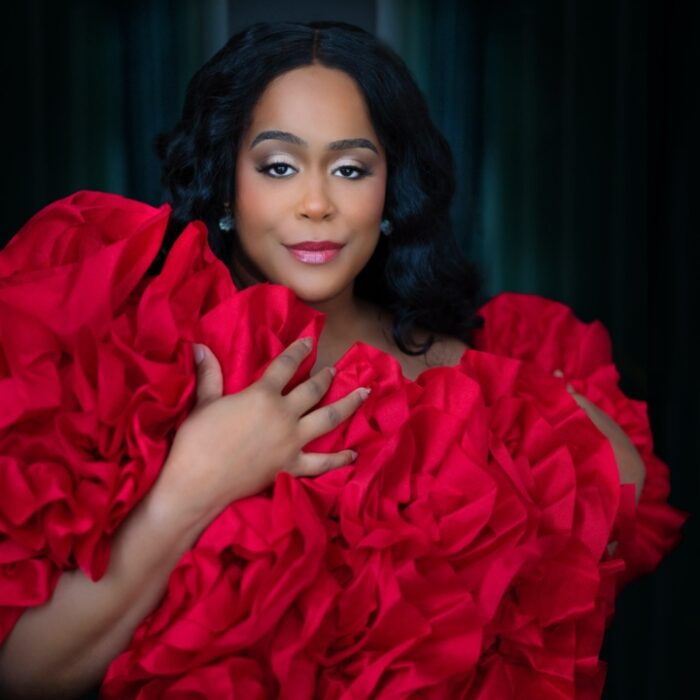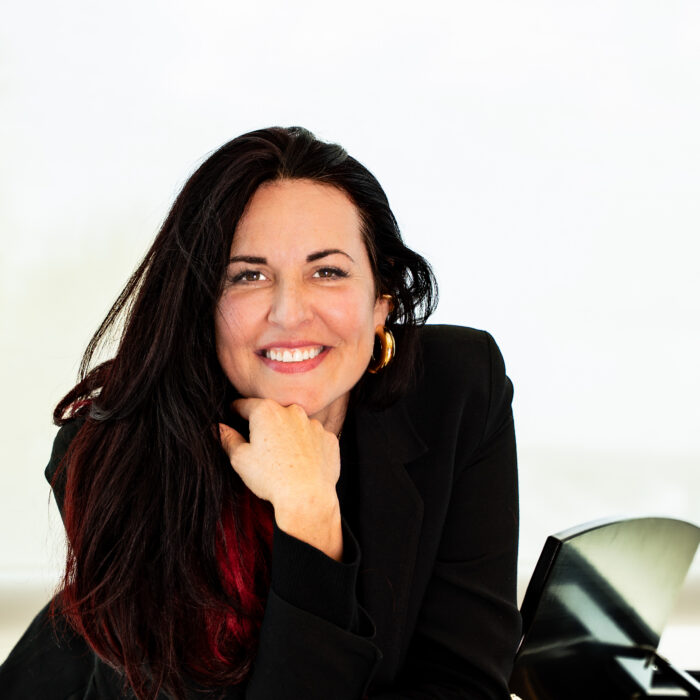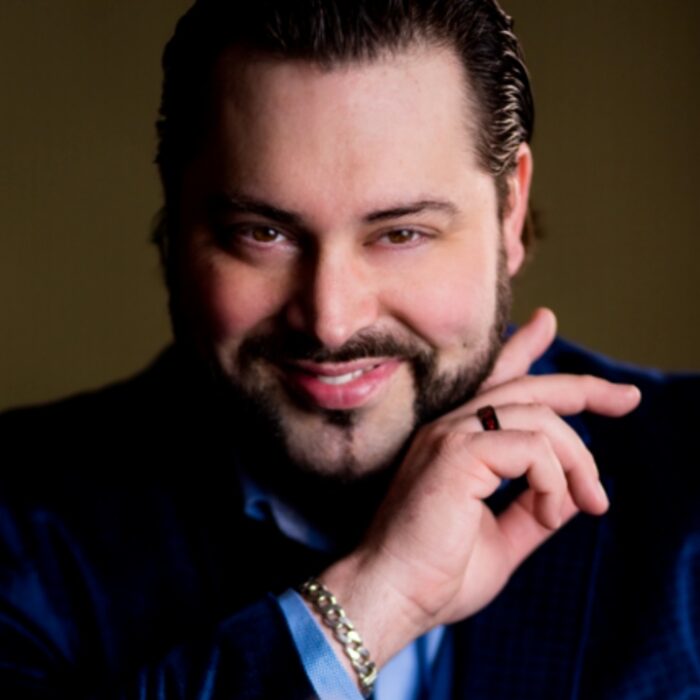
Q & A: Soprano Sophie Junker On Playing Giulia In Cavalli’s ‘Pompeo Magno’ & Her Forthcoming Debut At The Wexford Festival Opera.
By Alan Neilson(Photo: Alan Neilson)
The main presentation at this year’s Bayreuth Baroque Festival was a lavish, fully staged production of Francesco Cavalli’s 1666 opera, “Pompeo Magno,” boasting a large cast of high-quality singers and actors. Playing the role of Giulia was the Belgian soprano Sophie Junker, who, since winning both the London Händel Competition in 2010 and Innsbruck’s Cesti Competition in 2012, has gone on to establish an international career, specializing in baroque roles, although this has not stopped her from widening her repertoire into works by other composers, particularly contemporary composers.
OperaWire was in Bayreuth for the festival to review a couple of its events, including a performance of “Pompeo Magno,” and took the opportunity to meet up with Junker to talk about her career and her role as Giulia as well as her forthcoming performance in the title role of Händel’s “Deidamia” at this year’s Wexford Festival Opera, which OperaWire will also be reviewing.
OperaWire: What were the influences that led to you choosing a career as an opera singer?
Sophie Junker: That is a difficult question to answer. Love of music is something that happens in childhood; you start to sing the songs that make you happy, and for me, and for many children I guess, it is songs from musicals, like Disney. I used to love listening to “The Sound of Music” and Julie Andrews with her nice soprano shine. Actually, I still listen to it with my children, who also love it.
My father was a singing teacher. He didn’t push me towards a career in singing, but he noticed that I had the potential for it and encouraged me. He gave me lessons and helped me train my voice. I didn’t work at it a lot. I found it easy, and I learnt quite quickly, which he appreciated. He saw that I enjoyed it, and my voice had an impact, and he didn’t pressurize me. I have many siblings, and we all enjoyed singing together, but I was the only one who really wanted to become a professional singer, but they are all good singers. I cannot say my father was the most important influence in my choice of career, but he was super important, that is for sure!
There are other influences; I listened to a lot of French singers, for example, Jaques Brel, who knew how to sing from the heart, and I think this influenced my approach to singing: I try to keep a sense of sincerity, which can be difficult because you can become overwhelmed by technique. Sometimes, it can be hard to just let go. I like listening to singers who can capture sincerity and fragility in their voice; this is what touches the heart.
There are also classical singers, for example Cecilia Bartoli, whose singing also influenced my career choice. I remember listening to her album “Arie Antiche” a lot when I was a child.
Actually, my father was quite cautious about the idea of me becoming a singer, as he realized how difficult it can be to establish yourself in this profession. He was right, of course. And now, looking back, I think if I had to do it all over again, I am not so sure that I would make the same decision. But now I am very happy that I did. I have now reached a certain level with which I am content, but it has been a lot of hard work and has taken a lot of time.
OW: As you have just said, you won the Händel competition in London and the Cesti competition in Innsbruck at an early stage in your career. How important were they in your success? Would you recommend young singers to take part in competitions?
SJ: It is difficult to know how they affected my career. I think I was probably offered jobs because of them, and winning made me more well-known. On the other hand, if I had not won, who knows what would have happened? However, it was very important for my self-confidence. I have always felt like a bit of an imposter, which many other singers also suffer from, and it is something I have to live with, but it’s getting better. Having children helped me a lot as I started looking at things from a different perspective. I became more philosophical. So, purely from a confidence point of view, winning competitions was very important for me. I suppose you could say that it made me feel more legitimate as a singer.
I would advise young singers to enter competitions; whether you win or not, they force you to deal with the stress of performing, and they can boost your confidence.
OW: You define yourself as a singer that specializes in the baroque, but actually you perform a lot of other music as well, especially contemporary music. Was baroque music always the main focus of your career?
SJ: I feel very fortunate that I can earn money by doing something that I love. I like to go with the flow. I don’t want to focus on one aspect of my career at the expense of other things. Initially, I entered baroque singing competitions because when I was younger, I had a flexible voice with a shine which was suited to this type of music, so I followed where my abilities took me. Then as you earn a reputation for competing in competitions like that, you are offered work in that field, and of course you say yes and you build up experience, and the danger is that you are put into this box and don’t get many offers of roles outside it. However, it never felt like a personal choice.
Even though I love singing baroque, I would love to sing more roles from other eras. To do this, you have to show people that you are capable and willing, which requires that you advertise yourself in order to change the way people view you, which is something I actively engage in; after all, a fairy isn’t going to do it for me! I know I can sing a greater variety of roles, but others need to know this too.
I like the challenge of leaving my comfort zone, but it can be difficult to find the time. When you are offered incredible roles within the baroque repertoire, it can be very difficult to say no.
OW: Along with opera, you also give solo recitals and concerts. Which do you prefer to perform?
SJ: Of course, they are totally different. With a solo recital you are the focus of attention, and the pressure is all on you. In an opera, I am just a small joyful part of the performance, and not all the eyes will be on me. With a recital, you have more control; you can decide what you want to sing and what you wish to show to the audience. It is a very personal thing and brings with it its own joy. When you sing a specific recital for the first time, it is a lot of pressure, but then it becomes more relaxing with each performance.
For a solo recital, I try to do it by heart, as I have to with an opera performance, but with a concert you often have the score and you’re certain that you won’t lose your way, which makes it more relaxing. Also, you do not have to move around, which gives you more control over your body, including your voice.
I love doing all three. They each have a different energy that allows you to approach what you are doing in a different way. Sometimes, I really love doing a concert because I can feel totally relaxed, and I have greater control. The thing about opera is that you put yourself in more danger, but it is also the most fulfilling. You have this rush of adrenaline that you don’t necessarily get in a concert performance, and this gives you something extra. With an opera, you have small miracles happening all the time, in which you inhabit an entire new character and a new life, and everything is shaped around you and around your performance, which I find a very magical experience. You are part of something involving so many talented people at the top of their profession, and it makes the moment so beautiful. It is a real privilege to be part of something like this.
OW: You are currently playing the role of Giulia in Cavalli’s “Pompeo Magno.” How does the role fit into the plot as a whole?
SJ: The opera takes place during Ancient Rome. She is the daughter of Cesare, and Pompeo is in love with her. She is a very earthy character. She is also funny and mocking. Max Cencic, the director, has set the opera in 17th century Venice and the spirit of the commedia dell’arte. So, Giulia, who is Pompeo’s love interest, is also portrayed as Colombina. The stage is full of these characters, who add lightness to the show, which is essentially a serious story, and my character is a link between these two worlds.
It is an opera with a lot of roles, with three or four major ones like Pompeo, Farnace, Sesto and Issicratea, and the rest, including my role of Giulia, are musically interesting but are not particularly big roles.
OW: What are the challenges of the role?
SJ: As it is a quite small role, you don’t have time to settle in your voice or to allow the emotions to rise little by little. You have to hit the ground running; everything is energetic, and I have to be in this frame of mind from the moment I set foot on the stage. There is nothing gradual about it. I sing my first aria after only two minutes of being on stage. It lasts about a minute, and I have to race around the stage as I am singing it. It is like a mini marathon, and I am totally out of breath by the time I finish it.
I can put a lot of myself into the character, but mentally I am no longer a teddy bear. I am more settled; I have a family with children. Of course, I can be fun, but Giulia is more irresponsible than I am; she doesn’t care about anything. So, I cannot fully identify with her, but that is the nature of the job; we have to adapt to the role, and it can be a big challenge, but I love this job, as it allows me to do things that are just not in my nature.
The challenge is to make a small role fun, interesting and engaging. But I am happy about the role.
OW: This autumn, you will be performing the title role in Händel’s “Deidamia” in Wexford. Have you ever performed at or visited the Wexford Festival Opera?
SJ: No, this will be the first time I have been to the city.
OW: What are your expectations about the festival and the city?
SJ: From what I have heard about Wexford, I am really looking forward to it. It is supposed to be a beautiful town with very friendly people. I love nature, and I want to spend some time on the beaches, which sound fantastic. I even enjoy wind and rain, which I believe is a possibility at that time of year.
I will be sharing an apartment with other singers, which will be great as I like the community of other performers. Everything I have heard about the opera house has been very positive, so I can’t wait.
OW: What are the challenges of singing the role of Deidamia?
SJ: We will be using a modern orchestra, so it will be a higher pitch than what we would use for a historical performance. This will make it harder for me, as a lot of it sits on the passaggio, on the G and F, and this a tricky passage for a soprano, so I need to work really hard on this.
Although I don’t know how they intend to present the character, Deidamia is depicted as a young, naive character, so I must sound youthful. It is also a substantial role with lots of contrasts; at the beginning she is a pure character, but as the opera develops, she becomes more intense. The role was written for La Francesina, and she had a different voice to mine. I think that she must have had a voice with a purer quality than mine; you can feel it in the way it has been written. It also sits higher than my voice. It is certainly a challenge, but one that I am excited about.
OW: What do you still want to achieve in your career?
SJ: Life has been very kind to me so far, so I try to keep my expectations realistic. However, there are many things I would like to do. I would like to keep developing as an artist; I want to improve my singing so I can perform at a higher level in more prestigious houses; I suppose that it is the dream of every singer. I would also like it if I could sing more in France, as this would give me the luxury of working closer to home.



